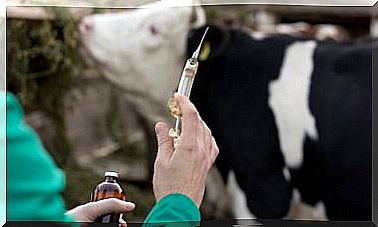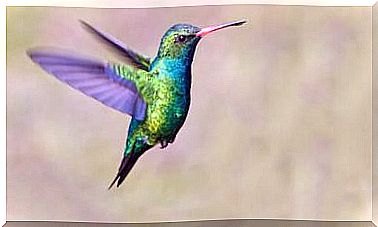5 Keys To Caring For Exotic Animals
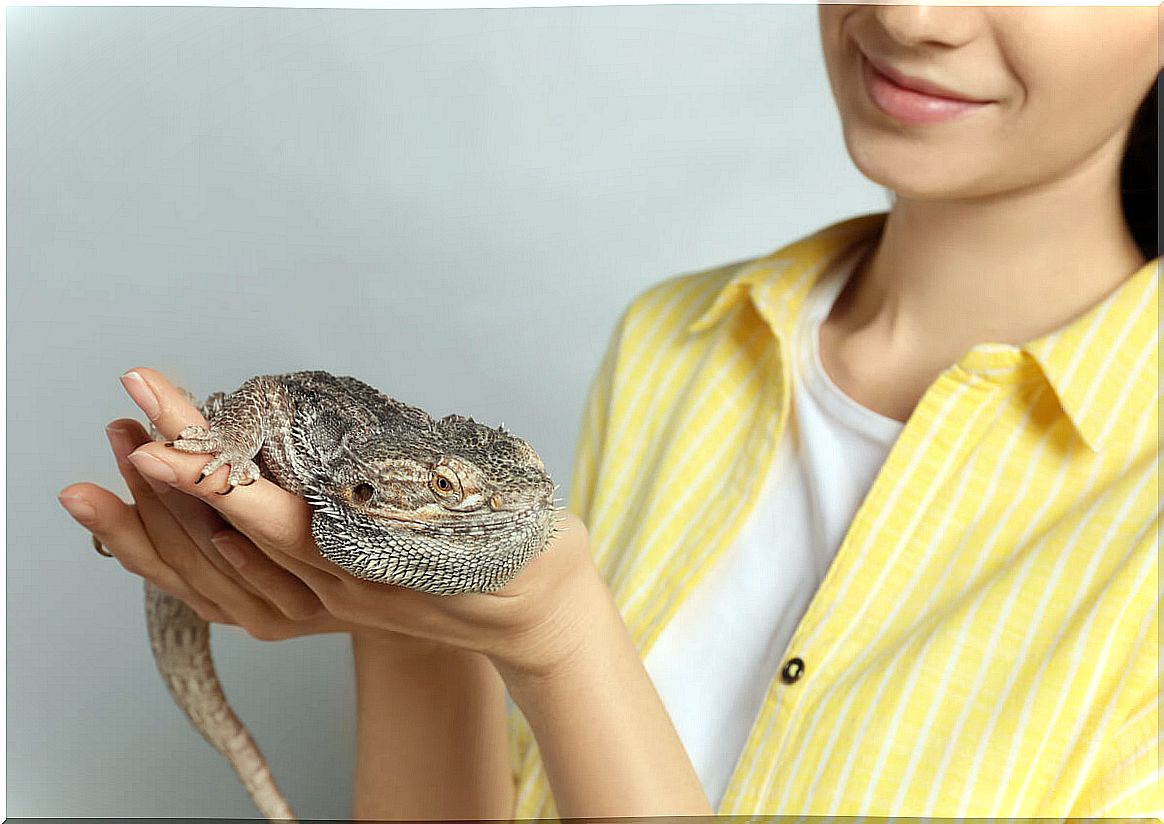
Caring for exotic animals is often more difficult than it might seem at first. These living beings come from environments extremely different from those of humans and are adapted to the specific conditions of their places of origin.
Also, unlike cats and dogs, these animals have not undergone the domestication process. Therefore, they cannot be treated in the same way as the most common pets. It is necessary to recreate the conditions of their natural ecosystems so that they can survive.
Despite the difficulties, it is possible to get exotic pets to achieve adequate living standards in captivity, provided certain keys are followed. In this article, we will tell you about them.
The keys to caring for exotic animals
Exotic animals are very conspicuous, but their care brings with it difficulties and ethical considerations. The following are some of the things to keep in mind if you decide to adopt a reptile or amphibian.
1. Research the animal
Perhaps the most important point for the care of exotic animals is the previous investigation on the care and characteristics of the animal. Before acquiring any exotic pet, you must know in depth the conditions it needs to survive and how to achieve them.
Some aspects that you should take into account are the following: the equipment, the dimensions of the terrarium, the type of food, the nutritional supplements, the degree of humidity, the water filtration, the sources of heat and ultraviolet light. These conditions will vary depending on the species.
In addition, it is essential to ensure the longevity, temperament and adult size of the species. Knowing these characteristics, you will avoid acquiring animals unsuitable for a floor or a specific lifestyle by the tutor.
The information available is not always reliable and can vary greatly depending on the source, so it is highly recommended to contrast and consult as many reputable sources as possible. Do not get carried away only by the opinion of the seller, because his main interest is that you buy the animal.
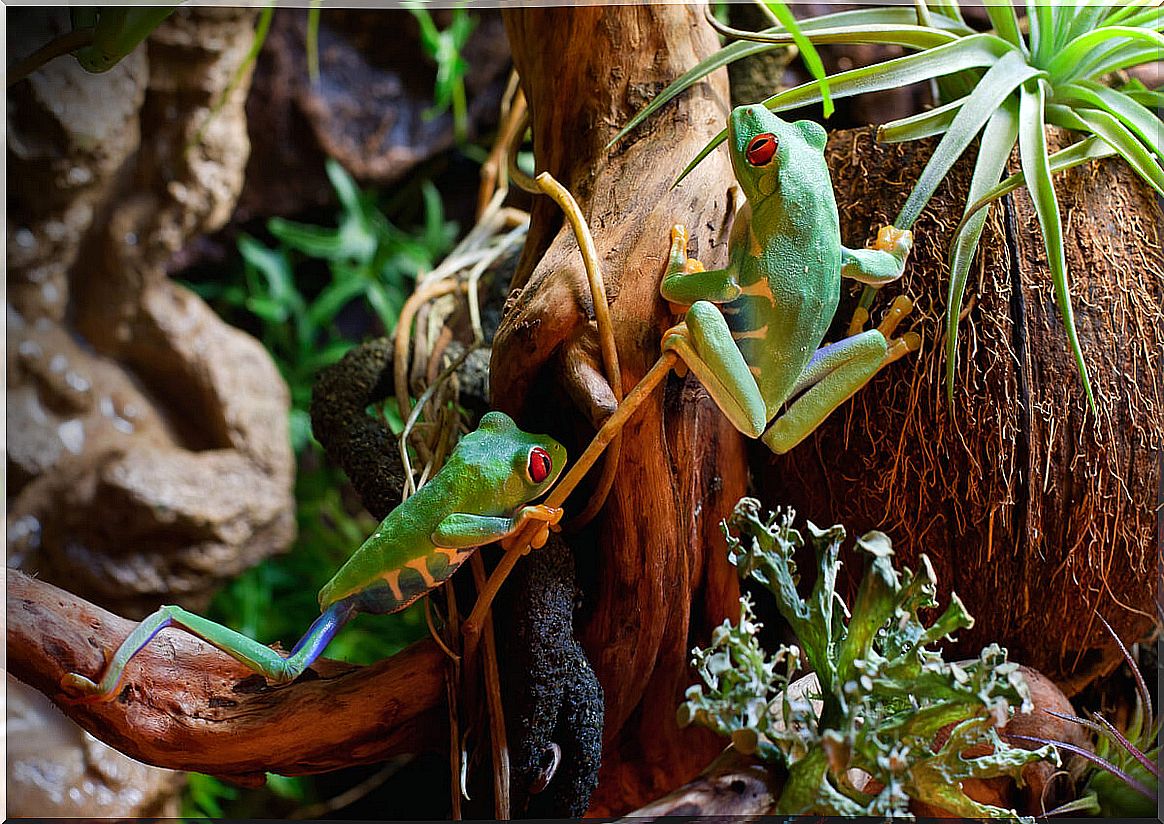
2. Don’t buy on impulse and make sure the animal is the right one
It is a good idea to have obtained all the necessary means for maintenance – such as the terrarium, substrate, thermostat or thermal blankets – before purchasing the animal itself. You should also have located a suitable vet and shop where you can get food and other resources on a regular basis.
Likewise, it is necessary to take into account how demanding the species is and the level of knowledge necessary to maintain it. For beginners, species with less requirements are recommended, about which there is more information and which are more resistant.
In addition, you have to be realistic with the economic, space and time limitations when choosing an animal companion. Buying animals on impulse contradicts all these principles and prevents a thorough investigation from being carried out. Therefore, it should always be avoided.
3. Always choose captive-bred animals
When it comes to acquiring exotic animals, there are usually 2 options: that the animals have been captured from their natural environment or that they come from captive breeding. Adopted animals must always come from the second option.
The capture of animals for the pet trade is one of the most serious threats to wild populations. These practices have brought numerous species to the brink of extinction. Furthermore, they are frequently cruel, illegal and carried out by poachers.
Thousands of animals die during this process. Many others have suffered so much that they end up dying shortly after being adopted. A considerable number have parasites, a deteriorated state of health and never get used to life in a terrarium.
The best way to get animals that are healthy, comfortable in the home, and live long lives is to get them from a breeder. Preferably, you should get your pet from an accredited, experienced one whose priority is the welfare of the animals.
4. Avoid collecting
There is a wide variety of exotic pets available, especially in specialty stores. This can cause interested persons to acquire more and more different animals.
One possible consequence of this is that the welfare of animals is increasingly neglected, as their care takes up more time and space. A small change in the owner’s life could leave the animals unattended.
On the other hand, collectors of exotic animals often end up looking for the rarest and most exclusive species. The care in captivity of these species is not at all clear, so many of them end up dying, sick or with a very poor quality of life.
5. Beware of exotic animal morphs
Through artificial selection, breeders have managed to produce animals with colors that they would never present in nature. These colorations are known as morphs. Morphs are very conspicuous, but they can be linked to high levels of inbreeding, neurological defects, or other harmful side effects.
Because of this, the morphs of some species have a poor quality of life and should not be traded. Before acquiring a morph, you have to make sure that it does not affect the health of the animal.
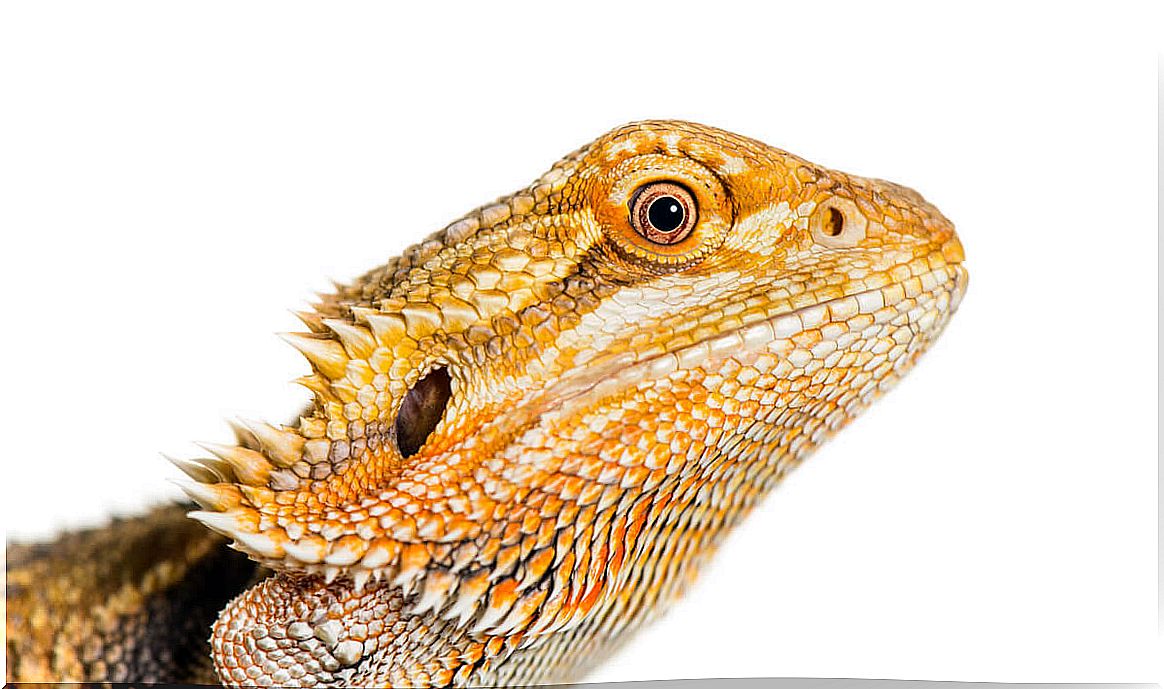
In short, it is important to always keep in mind that exotic animals are very delicate living beings. They are being subjected to very different conditions to which they are adapted, so tremendous care must be taken to ensure their well-being.



